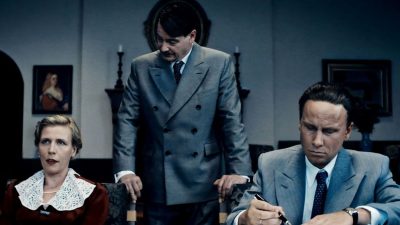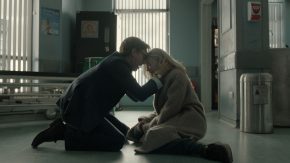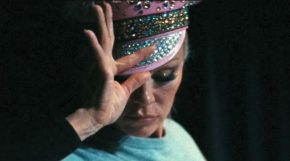You might remember some details of the life and times of Robert Schumann. For instance, the story of his marriage is so novelistic as if it was written by one of his contemporary friends. Clara Wieck’s father, Friedrich Wieck, did not want the couple to marry, so the two betrothed sued him together. The court allowed the marriage which then started in 1840, and it was also the beginning of a very fruitful artistic collaboration between the two artists.
Just one example: before Robert married Clara, he only composed for piano, and the inspiration coming from his wife must have played a huge role in how all those songs and orchestral pieces suddenly burst out of him. Unfortunately, as we know, they did not live happily for too long, the romance novel turned into a gothic horror novel. Robert’s mental illness, which was not really known at that time, had a bigger and bigger impact on his life, so he died in a mental asylum – where he applied himself so that he surely won’t hurt Clara and their children – at only forty-six years of age.
Even though his life was so short, he left a huge and wonderful legacy. For instance, the number of his song cycles or collections is more than fifty. These are played all around the world, usually in the way Robert Schumann wrote them: with a soloist and piano accompaniment. However, Alexander Schmalcz, Professor at the University of Leipzig and a renowned pianist himself, dared to dream bigger and to have a bit more innovative impact on the Schumann heritage recently. On the one hand, he reorchestrated the songs, giving the dimensions, colours and depths of a chamber orchestra. On the other hand, he selected nine songs from six different cycles: the earliest ones are from 1840, the latest from 1852.

Kammerorchester Basel. (c) Lukasz Rajchert
The pieces, written for the poems by German Romantic poets, have not been organised like this accidentally. If we look at the texts, they can be read as a little story with a visible emotional arc. Everything starts when the evening is coming down, the contours get blurred, and the bitter tears of loneliness can flow freely. The Romantic soul longs to be in nature, it might be only the flowers who understand their pain and vulnerability, and only they hear them whispering the name of their lost love. All nine poems are different, but all of them are full of longing for freedom and fleeing from societal conventions. Alexander Schmalcz succeeded in creating a brand new song cycle in the end.
We can hear these songs in Matthias Goerne’s interpretation on the stage of the Müpa soon. The speciality of the popular and worldwide employed baritone is German Romanticism: before this Schumann project, he also worked a lot with Schubert, and he has been singing Brahms, Wagner operas, Beethoven and a lot of other things as well. Reviewers usually praise his vocal range and his emotional depth, as Goerne not only sings the songs but uses his whole to express their message. He gesticulates, moves with the music, really experiences the emotional component, and he can also make the audience feel the same. He has worked with Alexander Schmalcz a lot, and reviews also reveal how well they can connect to each other on stage. Meanwhile, Goerne is a truly humble artist; for instance, he once said in an interview:
“Your mother language defines who you are and what you can do. I was lucky to be born in the right country to perform the German lieder repertoire, but I would never go to a French-speaking country and start singing Debussy, Ravel or Poulenc, because I know that the audience could not be satisfied.”
Audience of the Budapest concert won’t stay without French pieces though! The Kammerorchester Basel put three additional pieces in the programme. Debussy, Roussel and Gounod all have a “little” work in it, as two of them are called Petite Suite and one Petite Symphonie for Winds, supplementing the German song cycle. That is how we can witness on stage how two periods, two countries, and most importantly Matthias Goerne’s singing voice with the majestic sound of the orchestra, merge into one beautiful show.



























Comments